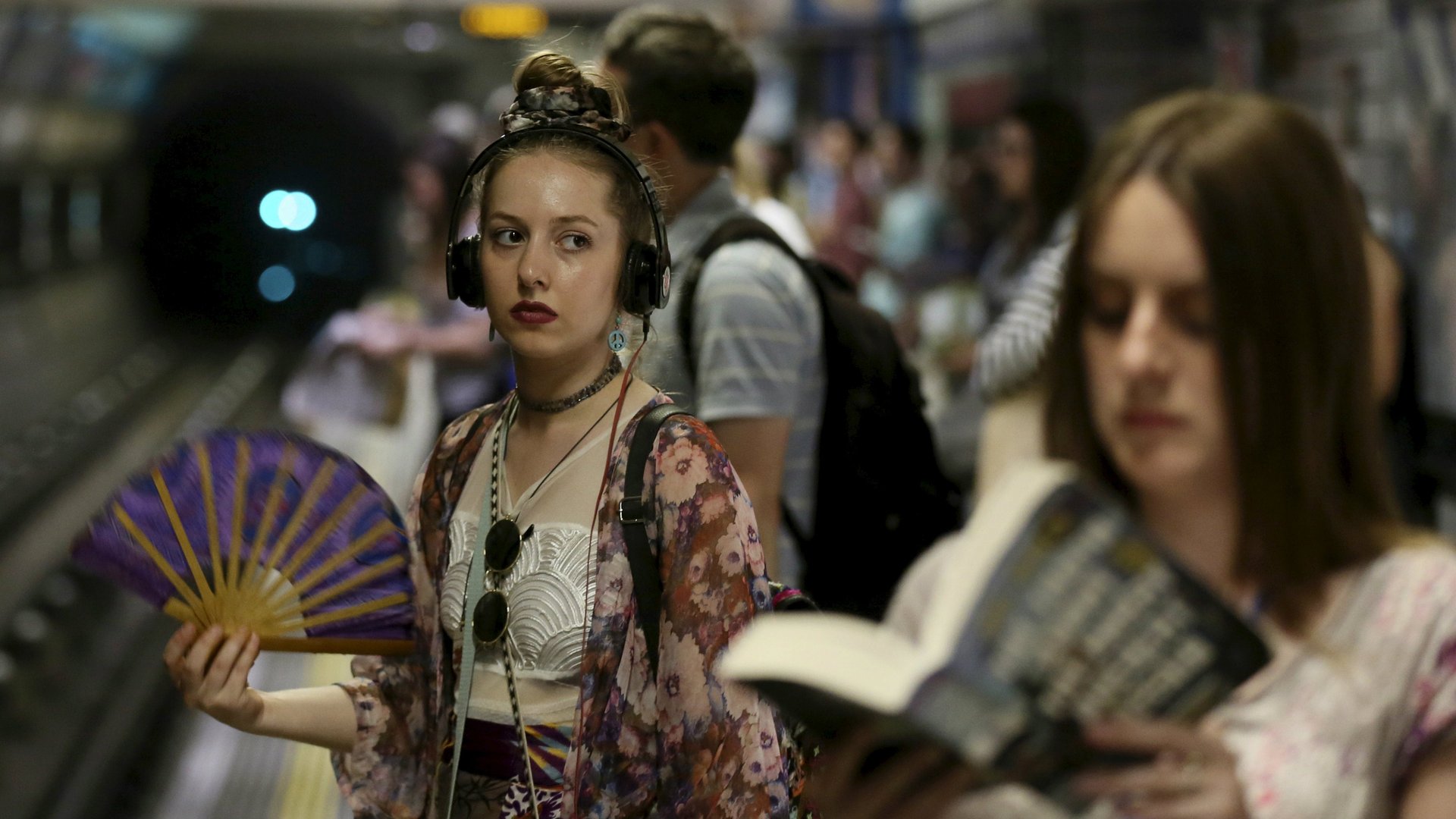‘Aging millennials’ are a thing and Theresa May’s government just made a blatant appeal to them
The UK’s Conservative government announced a new budget today, confirming that it will extend the cutoff age for its young person’s discount railcard to 30, from 25. The change will offer 4.5 million more people a 33% discount on rail travel at non-peak times for a one-time fee of £30 ($40). By introducing the measure, the Tories are throwing a bone to a nascent but potentially promising electoral demographic: aging millennials.


The UK’s Conservative government announced a new budget today, confirming that it will extend the cutoff age for its young person’s discount railcard to 30, from 25. The change will offer 4.5 million more people a 33% discount on rail travel at non-peak times for a one-time fee of £30 ($40). By introducing the measure, the Tories are throwing a bone to a nascent but potentially promising electoral demographic: aging millennials.
This is not, it should be noted, an official designation. But aging millennials are a potent sub-group of the much-maligned millennial demographic, loosely and somewhat controversially defined as those born between the years of 1982 and 2004. Like their younger counterparts, aging millennials are a product of their economic environment. They’re a good deal beyond school and the early years of their career, but still far from the financial security of their parents. (Blame all that avocado toast.) Aging millennials are at a point where attractive economic proposals might begin to carry as much weight as social issues on the agenda. They may finally have a stable job, but they are still saddled with debt, student loans, and a long working future in which the likelihood of home ownership looks grim. They are looking for relief.
This is not the first time the UK government has appealed to this demographic. David Cameron’s not-yet-materialized “starter homes” and Theresa May’s decision to increase the graduate loan repayment threshold were similarly pointed initiatives. But the railcard discount is perhaps the most blatant and tokenistic gesture yet: The government is acknowledging that a fully employed 28- or 29-year-old may still be cash-strapped enough to need the rail fare discount of a 16-year-old. They may also be hoping that a tangible economic concession will pique the interest of that economically strapped voter, and direct it toward bigger policies.
That could be a shrewd move for a government that has struggled of late to attract young voters: In June’s general election, 18- to 29-year-olds overwhelmingly voted against the Conservative party. But that will take more than a rail discount to fix.